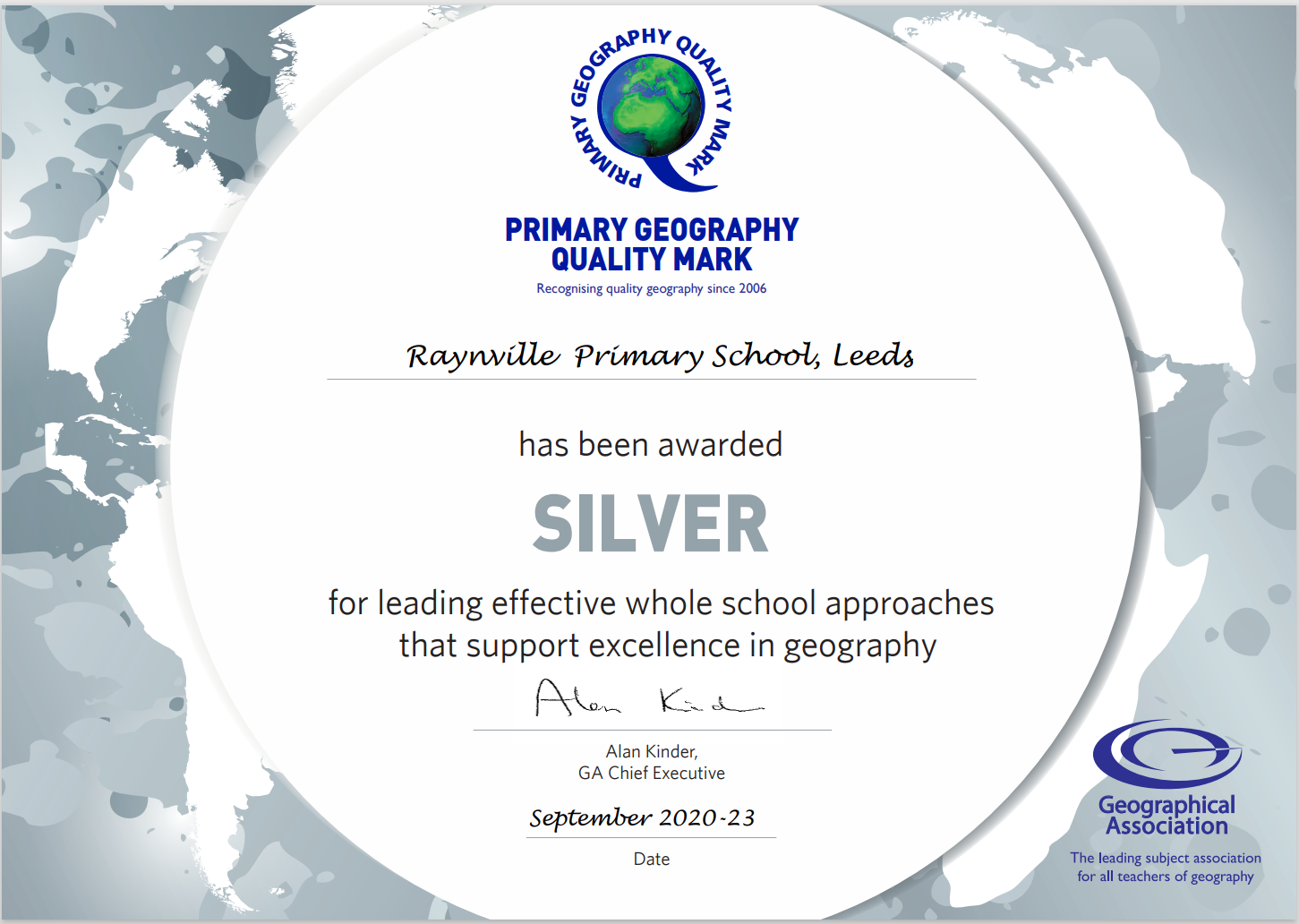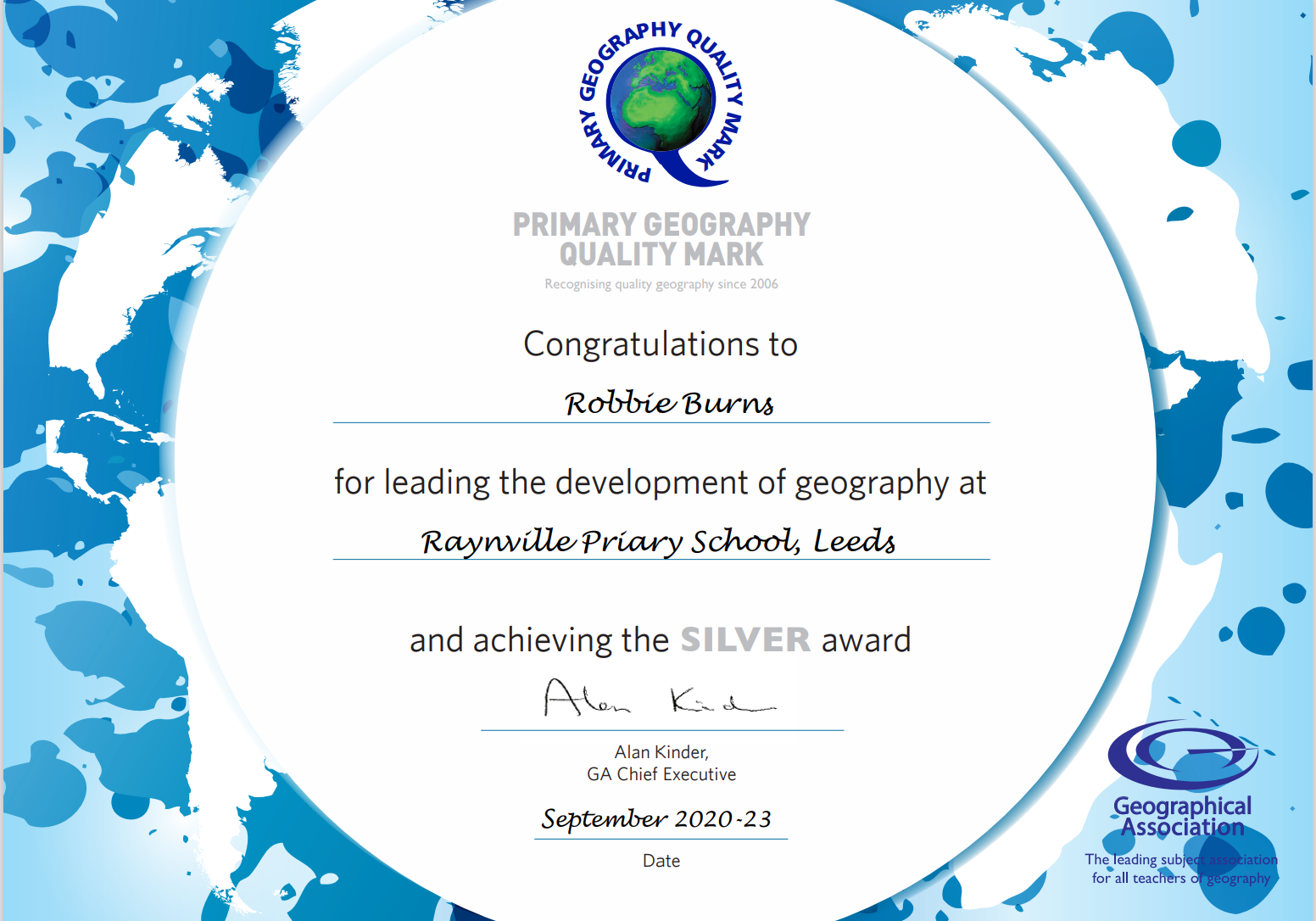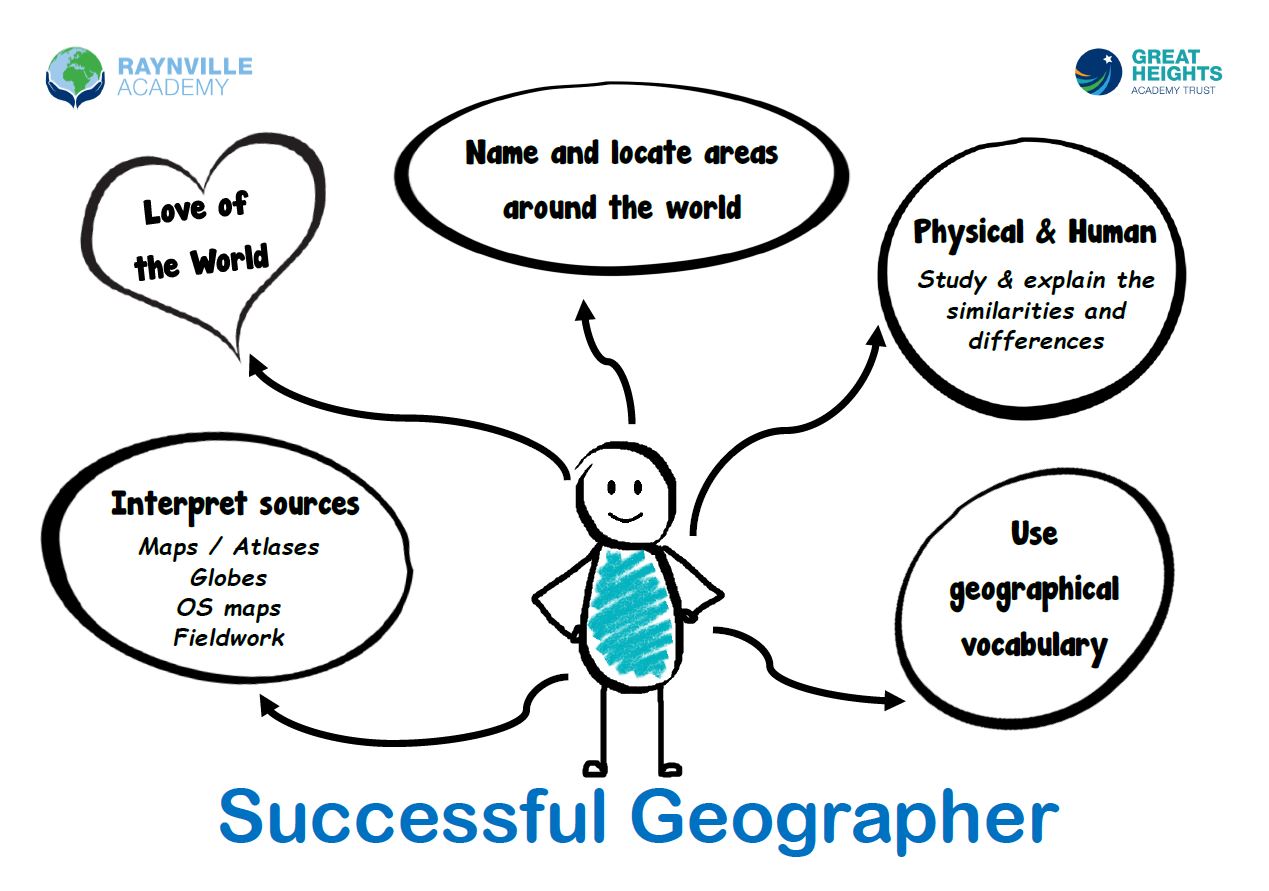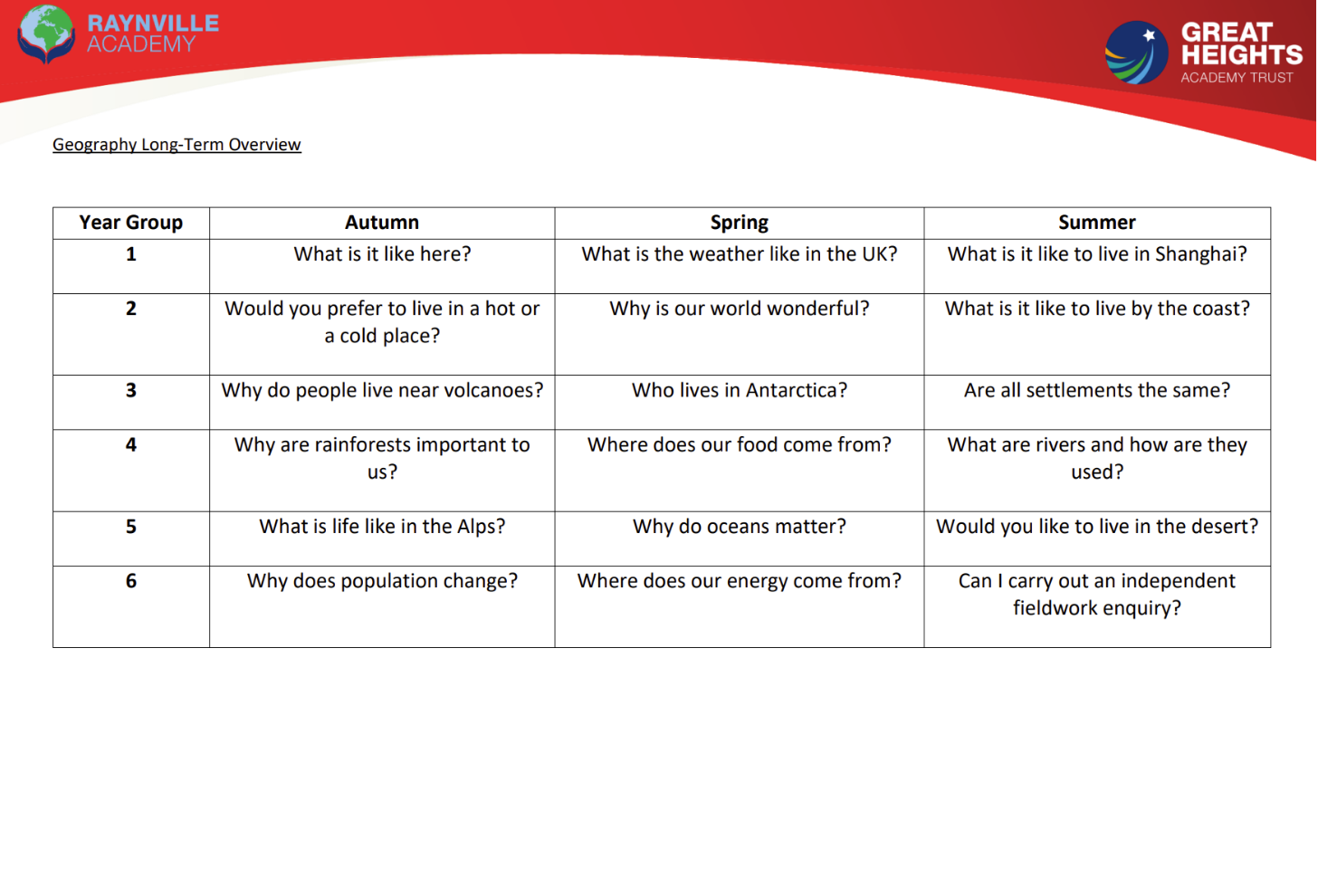Geography
The geography curriculum at Raynville Academy aims to inspire and ignite a curiosity for the world around us. Research and field trips form an important part of children’s learning. The area surrounding the school is a rich source of historical and geographical interest and the children study the local area in depth before studying other areas and different countries. Geography is taught discreetly as a stand alone subject and where appropriate links can be made to other subjects. Geography is alternated half-termly with History and will be taught in Autumn 1, Spring 1 and Summer 1.
At the Raynville Academy, every geography unit is framed around an overarching enquiry question and echoes the structure of the National Curriculum: Locational knowledge, Place knowledge, Human and Physical Geography, Geographical skills and fieldwork
The structure of the Raynville curriculum enables children to broaden their knowledge of countries around the world throughout Key Stage 1 and Key Stage 2 as well as revisiting and reinforcing place and locational knowledge of the UK. Through fieldwork, enquiry and investigation, children gain a deep understanding of how their local environment differs to others and how environments impact the way people live.
The Geography Association Primary Geography Quality Mark

The Geography Association Primary Geography Quality Mark

What does this mean?
We have been recognised for having an ambitious, well planned and coherent geography curriculum, with a clear and articulate rationale for any topics or themes covered, which constantly builds on prior learning.
Pupils are given opportunities to develop confidence, independent enquiry and critical thinking, while working collaboratively, safely and with resilience.
Rigorous monitoring and reflection identifies priorities and strategies for improvement and lead to a well-focused geography curriculum.



